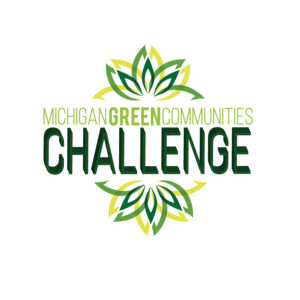Catalyst Communities Pre-Conference Workshop
Early on the first day of the conference, 30 attendees participated in a Catalyst Communities workshop that focused on technical assistance and funding opportunities across three categories: climate adaptation, energy solutions, and water infrastructure. Participants learned about offerings available through EGLE’s Office of Climate and Energy, EGLE’s Energy Unit and Madigan Consulting & Coaching’s climate advising services, the National Renewable Energy Laboratory’s (NREL) Clean Energy to Communities Program, the Michigan Water Navigator Program, and the Sustainable Small Harbors Guidebook.
Breakout discussions engaged attendees in conversation with climate experts and other attendees involved in climate action planning at the local government level from across the state. It was an opportunity for participants to brainstorm and problem solve, collaborate, and learn about ongoing sustainability initiatives in other Michigan communities.
MGC Challenge awards
On the second day of the conference, the 48 communities that participated in the 2022 MGC Challenge were recognized for their achievements in environmental sustainability. This year, nine communities received bronze certification, fourteen received silver certification, and twenty-five received gold certification. These communities completed actions related to energy efficiency, climate adaptation and resilience, materials management, and more. Local government representatives were presented with reusable, MGC Challenge–branded Yeti mugs during the ceremony.
Sustainability Plan Template
Later in the afternoon on the second day of MISCON, Danielle Beard, Michigan Green Communities Program Coordinator, led a breakout session titled “So many plans, so little time.” This workshop highlighted the newly released Michigan Green Communities Sustainability Plan Template and toolkit. This suite of template resources was designed for municipalities and counties to evaluate their local operations, ordinances, and policies and create a plan for advancing environmental sustainability in their communities. They include an internal-facing sustainability workplan; a public-facing sustainability plan template; a one-page progress report template; and a user guide. The template resources align with the MGC Challenge.
Beard also discussed federal climate-related funding available to communities directly or by grant applications through the American Rescue Plan Act (ARPA), Infrastructure Investment and Jobs Act (ILJA)/Bipartisan Infrastructure Act (BIL), and the Inflation Reduction Act (IRA). Beard explained how use of federal funding comes with certain stipulations, including meeting Justice 40 requirements. The federal Justice 40 Initiative aims to direct 40 percent of specified federal investments into “disadvantaged communities that are marginalized, underserved, and overburdened by pollution.” Investments related to climate change, clean energy and energy efficiency, clean transit, affordable and sustainable housing, training and workforce development, remediation and reduction of legacy pollution, and the development of critical clean water and wastewater infrastructure are all included as part of the J40 Initiative. It is important for communities to consider the impact of federal climate funding on disadvantaged communities in their municipality while completing their grant applications and using federal funding from this legislation.
One resource featured during the session was the University of Michigan’s Graham Sustainability Institute ILJA Federal Funding Tracker. This spreadsheet can help communities sort through the overwhelming amount of federal funding programs and identify opportunities that meet their sustainability goals. It aims to display, organize, and filter federal funding opportunities available for local governments to help meet their sustainability goals. It is updated by the Graham Sustainability Institute regularly.
Conclusion? Participating in state events, such as MISCON, is important to the Catalyst Communities and MGC programs as part of their efforts to help advance local government sustainability efforts. This year was a success!
